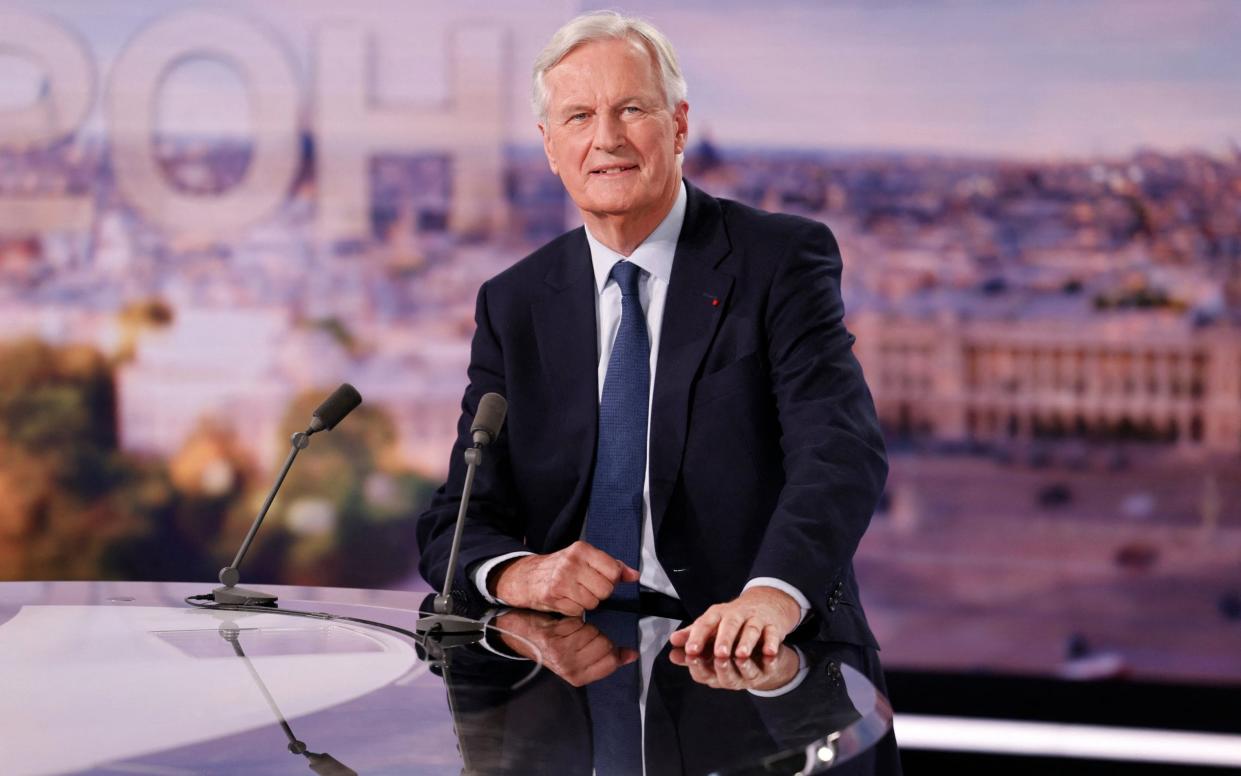Michel Barnier now most popular politician in France – as Macron languishes in 44th place

Michel Barnier has become France’s favourite political figure, according to a surprise new poll, two weeks after president Emmanuel Macron appointed him prime minister.
The poll comes as the 73-year-old former EU Brexit negotiator is struggling to cobble together a new government in the wake of snap elections in July, which left France with a hung parliament. It has been in legislative limbo ever since.
With a 57 per cent approval rating, Mr Barnier shot to the top of the popularity rankings ahead of three of his predecessors: Edouard Philippe (55 per cent), Gabriel Attal (54 per cent) and Jean Castex (54 per cent), according to an Ifop-Fiducial poll for Paris Match and Sud Radio.
By contrast, Mr Macron is languishing in 44th place on 31 per cent.
Mr Macron’s surprise appointment of Mr Barnier – a relative unknown domestically despite his role in negotiating with Britain on its withdrawal from the EU – ended nearly two months of deadlock but infuriated the New Popular Front coalition of Left-wing parties, which won the election but fell short of a majority.
Marine Le Pen’s populist, Eurosceptic National Rally was the single party with the largest number of seats. She has reportedly issued assurances she will not automatically oppose a Barnier government in parliament.
The election has split parliament into three blocs with Mr Macron’s centrist allies making up the final third.
The poll comes as Mr Barnier and his predecessor, Mr Attal, are reportedly at daggers drawn after a meeting between the pair slated for Wednesday morning was “postponed”.
Mr Attal is now in charge of pro-Macron MPs in parliament whose support Mr Barnier needs to command anything near a majority.
One bone of contention is Mr Barnier’s intimation that he may have to raise taxes, a red rag to Macron supporters and Right-wing Republicans who are expected to form part of his Cabinet.

Gérald Darmanin, the interior minister and a staunch Macron ally, said on Wednesday that it was “out of the question” to join, or even back, a government that raised taxes.
On Wednesday morning, Mr Barnier warned that France’s budgetary situation was “very serious” and would require “responsible action”.
France’s public-sector deficit is projected to reach around 5.6 per cent of GDP this year and go over 6 per cent in 2025, which compares with EU rules calling for a 3 per cent ceiling.
The tax question is likely to deepen reported tensions between Mr Macron and Mr Barnier, who is said to have been irked that the president did not consult him about nominating foreign minister Stephane Séjourné to the EU Commission.
“Knowing where Michel Barnier stands on Europe and the loss of French influence, I think he’s just suffered his first humiliation,” one LR deputy told AFP on condition of anonymity.
Within days of taking office in early September, Mr Barnier said in an interview that “French people want more justice” in terms of fiscal policy, while several politicians have reported the prime minister mentioning possible tax increases in private conversations.
Such a move would infuriate allies of Mr Macron, who oversaw cuts in the corporate tax rate from 33.3 per cent to 25 per cent as well as tax reductions for households, including the wealthiest taxpayers.
Mr Macron has claimed a reduction in the overall tax burden by €50 billion (£42 billion) since he became president in 2017.
But years of extra spending during the Covid pandemic combined with sluggish growth have caused the French deficit to balloon, sparking the “excessive deficit procedure” by the EU, which is designed to force a country to negotiate a plan with Brussels to get their deficit or debt levels back on track.
Bruno Le Maire, the finance minister who is to be replaced soon, promised to bring the deficit back below 3 per cent by 2027 but many analysts have dismissed the plan as implausible.
Francois Villeroy de Galhau, the governor of France’s central bank, said this week that the objective was “not realistic” unless the government was willing to risk “stopping growth in its tracks”.


